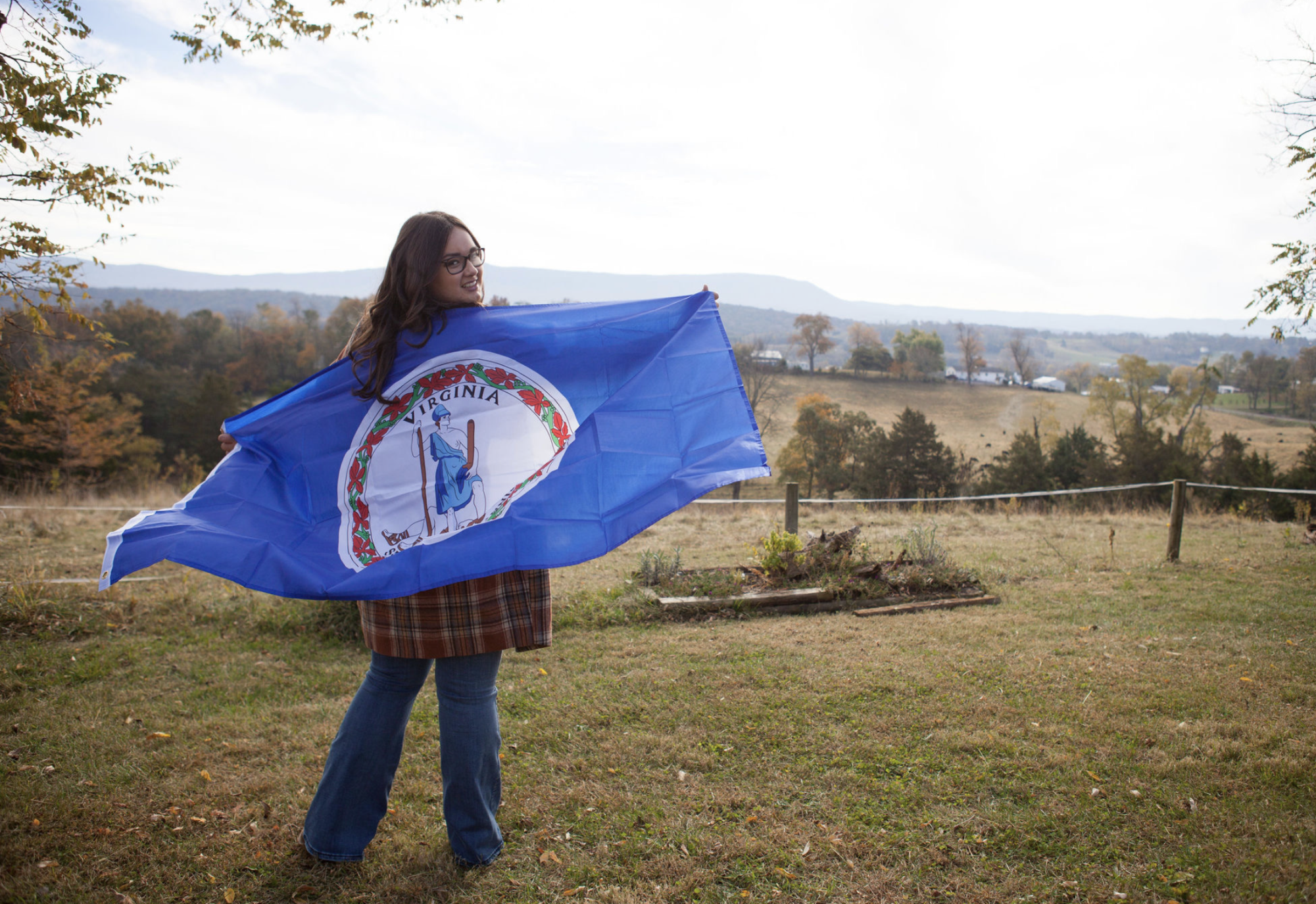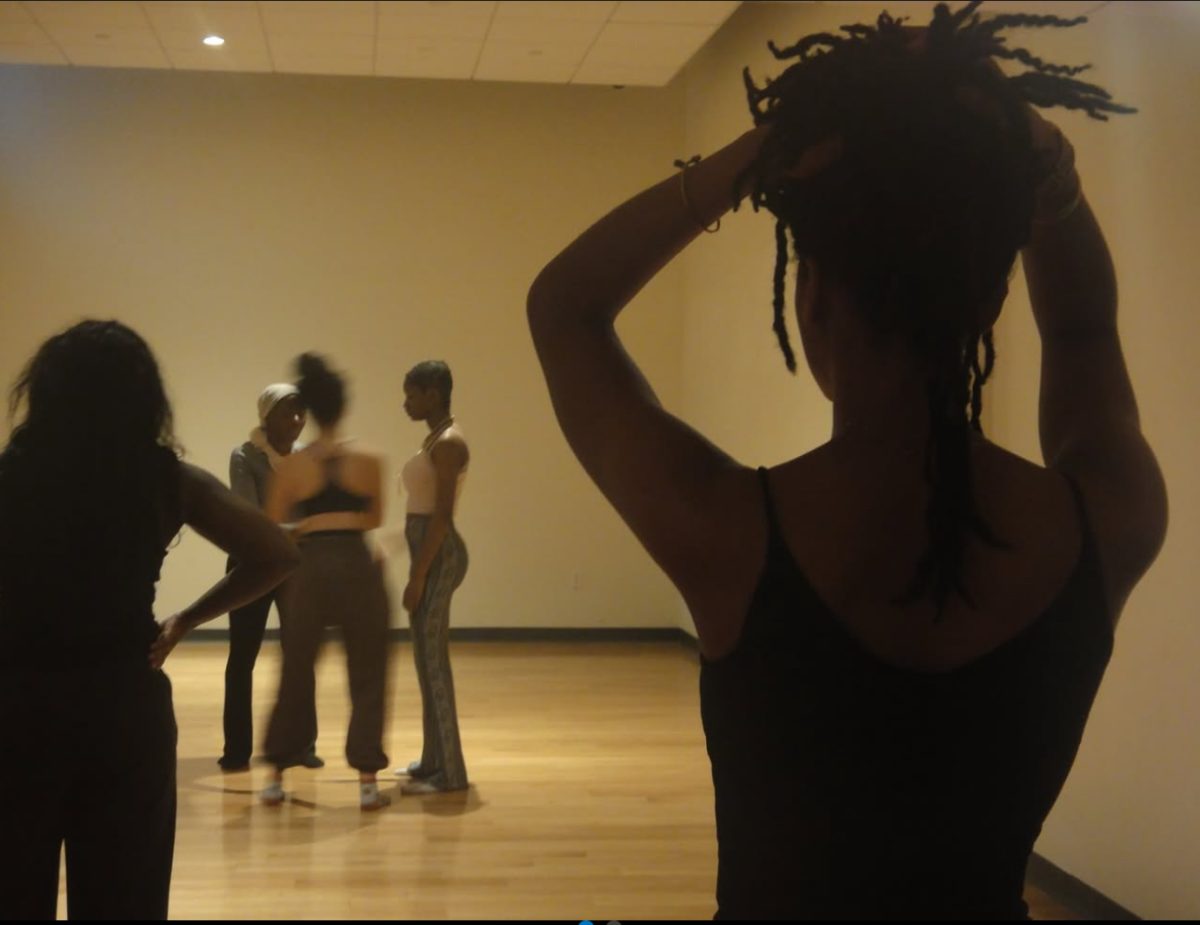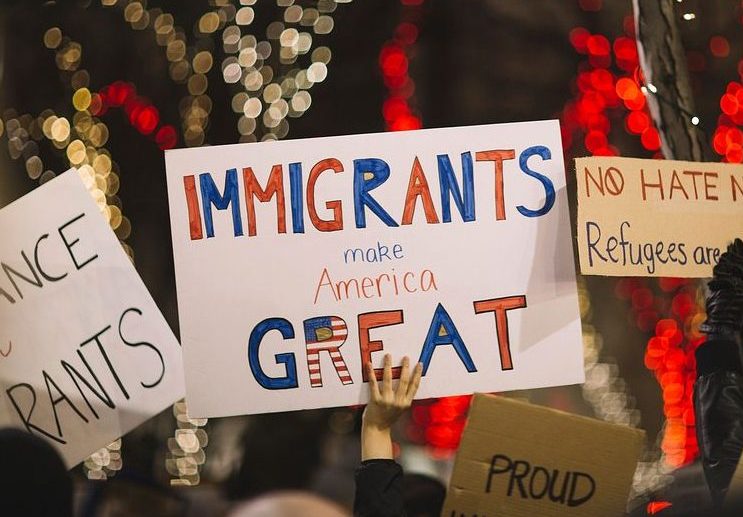Abby Garber ’27 probably has a better understanding of why the presidential election results ended up the way they were than most people on campus.
Garber, a religion and political science double major, has been working at a Political Action Committee (PAC) called Rural Ground Game for quite a few years now, and it has significantly influenced her understanding of rural American politics. The PAC provides ground support to rural Democratic campaigns and community leaders in Virginia, where Garber is from, and they focus on the fact that the rural communities impact elections in significant ways. They are dedicated to ground work and community organizing for Democrats in the Appalachia area especially, and Garber explains that their work is focused on building connections first and foremost.
Garber says, “We cannot expect to be seen as relevant or supportive of the best interest of our communities if we neglect to directly and consistently engage with them, listen and ask questions, [and] learn and work collaboratively on solutions to the challenges they face.”
Garber’s specific job — which she began in 2021 — is a special project and youth coordinator. This means that she works with rural Democratic campaigns to help them engage with young people on modern platforms. Garber’s main goal is to help them build capacity and a better system that helps them more effectively utilize their community resources, often through virtual formats that might help campaigns and committees reach young voters.
Garber works in all rural areas of Virginia, where she was born and raised, but her work is based in the Shenandoah Valley. Garber has a deep connection to the area; it is part of her heritage and the community she grew up in. She explained that Appalachia is the poorest region in the U.S., and people in rural areas seriously struggle with healthcare access, infrastructure, education, broadband access, energy access, economic opportunities, news access, agriculture, feeling effects of climate change like extreme drought and more. She emphasizes showing up for all rural communities in the area, each one unique, and says, “that’s how you build credibility and that’s how you build trust.”
“The consequences of leaving rural communities behind has been unacceptable for a long time now, but have now, especially for the 2024 election, truly shown themselves to be electorally invaluable,” she says.
For the 2024 election, which held not only a presidential run but also Senate and House races for Virginia, Garber helped create video ads, signs, print materials, billboards, newspaper ads and much more, all centered around empowering rural communities. Because her biggest passion is talking about the issues that matter to rural voters and hearing what they find most important in today’s political climate, Garber ran Rural Ground Games texting program, which allows her to reach over 100,000 people a minute.
“I know a lot of people at Wellesley probably received some really annoying texts. I promise mine are not annoying, and I’m here to talk about values that matter to communities,” Garber joked.
She helped craft and send texts to voters in Virginia, encouraging and educating on the progressive views of candidates in Virginia. She also participated in something called deep canvassing, where door-to-door volunteers speak extensively with community members about what’s on their mind and how they can be supported, spending longer at each door than most in normal canvassing. In this election, Garber’s PAC continued to put their focus on the rural, less-contacted areas of Virginia, emphasizing how voters’ needs were getting prioritized.
“Every person deserves that because every person deserves dignity, regardless of their ZIP Code,” Garber explained.
She had hoped for a lot of Democratic wins in this election, and she had also been hopeful for a Democratic shift in rural communities. Unfortunately, that wasn’t the outcome. Garber explains that while Rural Ground Game saw it in a few places, it was clear that there’s a lot more work to be done on the national and local level.
“I think post-election, I was numb for quite a while, and very much struggled with the reality of what we’re going to have to live through for the next four years,” Garber said. But she’s not giving up; she knows that there are wonderful people in her communities that are going to fight ignorance and bigotry vehemently. She encourages avoiding the “pit of despair” that seems so easy to fall into after the election, and she has been trying to remind herself of the wonderful people she talks to every single day, all of which support Progressive views and are still willing to defend them.
So, why does Garber think the election outcome was the way it was? She thinks that the Democratic Party needs to heavily consider a few things. One, she thinks that they ought to be fighting more in rural communities, because Garber points out that their aggressive turnout can drown out turnout in urban suburban areas very, very quickly. She also thinks that the Democratic campaigns need to expand beyond working just with big national movements, and put more emphasis into supporting local Democratic campaigns like Rural Ground Game does. She believes this is the best way to reach rural communities, a demographic that plays a big role in the outcome of recent elections.
Garber also cites the economy and the way it is presented to voters as a huge issue. She says voters receive economic messaging every day, and that the Democrats don’t always have the best counter to negative economic messaging against them. She also warns that this may cause a significant indoctrination of Gen Z men, something that she says has become evident in this past election cycle, as well as a rural belief in Conservative fiscal policy.
Beyond that, Garber believes that Democrats “really need to do an intentionally better job at forging relationships and connections, because I think our two sides have become so isolated from one another that we failed to create those meaningful relationships that change people.” She says that she is over the blame game, too, and that Democrats do not have to shift to the center; they just need to connect to more people. Garber worries that Democrats have become so isolated in a political bubble that doesn’t allow them to create those relationships that will change minds and lives — something that, for her, goes well beyond the election.
Garber’s work isn’t done: Rural Ground Game believes in a year-round ground support campaign. She says that this election has shown her that that kind of work is even more crucial than ever before, and she is empowered to continue fighting for Democratic policies and education on Democratic policy in communities.
“We can’t just rely on a certain candidate. We have to work 24/7; we have to show up for others. We have to be in a community and we have to care for every single person no matter what, because it’s the right thing to do, [and] because every single person has inherent value,” Garber emphasizes.
She said she’s feeling hopeful, because of how many people she knows are already ready to start putting up that fight. She knows many will be devastated by the outcome of this election, but they aren’t allowing themselves to wallow in that despair; they are continuing to advocate for communities and democratic policies in rural areas.
She leaves with this: “every single person can organize and get involved in their community.” Garber says the most meaningful work you can do sometimes it’s simply building relationships with others, especially people you love and care for. This can create a community that pushes Democratic values and progressive thinking forward. There is no easy way to fix the problems America is currently facing, but Garber says that sometimes the best fights are the hardest ones. She loves her community. She loves the people in her community and she thinks they’re worth fighting for, and she encourages everyone to join.
“And if you don’t know how to organize, you don’t know where to start, you don’t know what identity it is that you want to focus your organizing on, I would really encourage you to come talk to me … it took me a long time to find my niche, but I love Appalachia more than anything, and I will fight for it.”
The views in this article reflect the personal beliefs of the interviewees, and are not necessarily representative of the organization they are a part of.
Image credit: Abby Garber
Contact the editors responsible for this story: Phoebe Rebhorn and Diya Khanna








Fran Givens | Nov 13, 2024 at 8:47 pm
Top notch young woman! Kudos to Abby Garber!